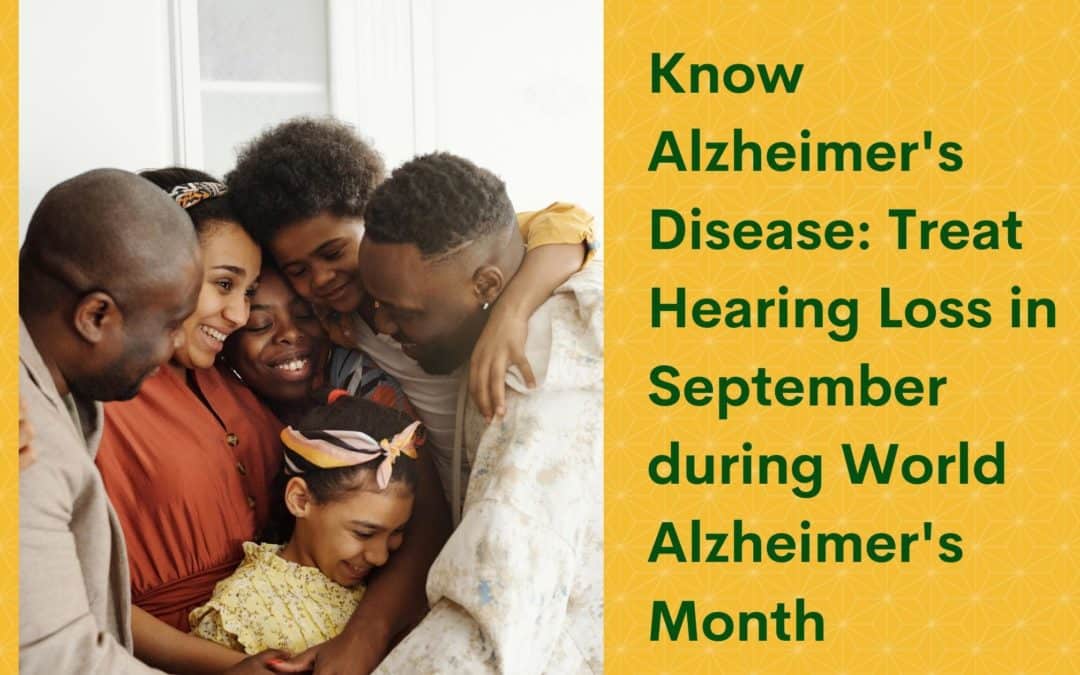Alzheimer’s disease is a neurodegenerative brain disease, characterized by memory loss and decreases in social and physical functioning over time. Discovered in 1906 by Alois Alzheimer, this is the most common form of dementia, affecting over 50 million people worldwide with 10 million new cases being reported annually. This September is World Alzheimer’s Month, an international campaign from Alzheimer’s disease International (ADI) in order to advocate, educate and challenge the stigma that surrounds dementia. One way to take advantage of this month is to explore what you can do to delay or avoid developing dementia at all!
Know the Signs of Alzheimer’s Disease
Common symptoms of dementia manifest as issues with memory, challenges in completing simple tasks, and even experiencing shifts in personality. The first signs of Alzheimer’s disease are often difficult to identify. Everyone forgets their keys every now and then. However, if this becomes more frequent it is up to you or your loved ones to take notice and take action.
Early Signs
There are many potential changes you may experience at the start of Alzheimer’s, which include:
Frequent memory loss: losing your way home on a path you’ve taken for years, forgetting a family member’s birthday, or even forgetting what you did yesterday.
Struggling to complete tasks: You can’t seem to remember how to sew the quilt you’ve made for years, or the meal you’ve always cooked.It is common to get stuck on a task halfway through.
Communication difficulties: It is common to struggle to follow conversations or lose the words you want to say.
Feeling socially overwhelmed: You may start to feel stressed or uncomfortable during social events and opt to stay home as communication becomes more challenging.
Changes in personality: You may feel like a different person or respond in ways your family is not expecting.
Alzheimer’s effect on Your Loved Ones
Perhaps most heartbreaking is the effect of hearing loss on people’s friends and families. Many times, people are not aware that they are experiencing cognitive issues and it falls on the person’s loved one to set up arrangement and care. As Alzheimer’s progresses it becomes difficult for an affected individual to take care of themselves, requiring 24-hour care which is a financial burden and time consuming.
Reducing Your Risk of Alzheimer’s Disease
Many of the communication issues you experience during dementia are very similar to those experienced by those with untreated hearing loss. For instance, when you struggle to hear it is common to be confused or disoriented in social situations. It is all too common to choose to avoid social situations, rather than face the stress of struggling to hear. For this reason, hearing loss is often misdiagnosed as the onset of dementia.
Studies Linking Hearing Loss and Dementia
It is also believed that hearing loss can make the effects of dementia much worse. Two separate studies from Johns Hopkins University led by Dr.Frank Lin examine senior patients with and without hearing loss to determine the likeliness of hearing loss increasing the risk of dementia. In one study, the researchers observed cognitive abilities, such as memory and concentration over a six year span in 2,000 patients between the age 75-84,. The study found that those with hearing loss declined 30 to 40 percent faster than in people with normal hearing.
A 2011 study also led by Lin examined 600 patients and identified that
Those with hearing loss at the beginning of the study were more likely to develop dementia than adults with normal hearing. The severity of hearing loss was found to make a significant impact, with study participants with mild hearing loss twice as likely, while those with moderate hearing loss were thrice as likely and those with severe hearing loss at a fivefold risk of dementia.
Have Your Hearing Tested Today!
There are many aspects of your health which can decrease your chances of developing dementia. For instance, focusing on a healthy diet, avoiding alcohol, smoking and regular exercise can significantly protect your blood pressure, heart health and more, which in turn protects your brain. Dealing with hearing loss is also important as it can contribute to mental health and social enjoyment. The difficult issue is identifying hearing loss. If you are 65 or older, make sure to have your hearing tested biannually. The sooner you identify a hearing loss, the greater your chances are of avoiding cognitive decline, leading to dementia. Make this September the month you finally deal with your hearing!

